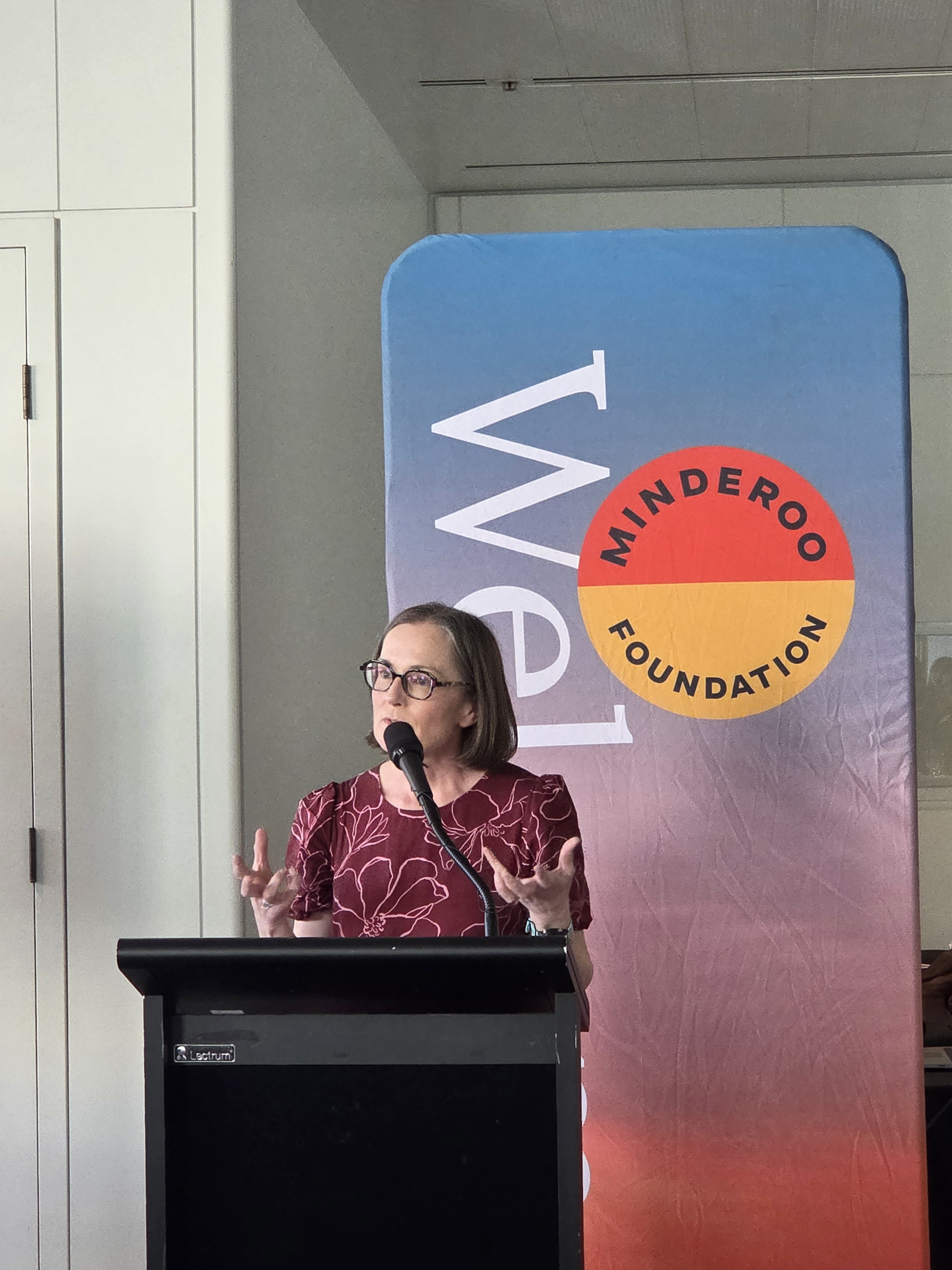
Cost of Late Intervention Report Launch
Speech by the Front Project CEO, Dr Caroline Croser-Barlow
27 August 2025
Professor Andrew Whitehouse said recently that children grow in time, attention, space and energy.
Those are the ingredients of healthy development.
And yet parents and educators have less of those than ever before — and they are unevenly distributed.
Families doing it tough often have the least of them, and that’s when children are most at risk of ending up in systems like child protection or youth justice.
That’s the context for the Cost of Late Intervention (COLI) report.
The cost of late intervention has risen steeply since the last report in 2019.
These aren’t abstract numbers – they are the price we pay when support comes too late. Every dollar represents a child and a family who were left to struggle until things tipped into crisis.
And yet we know what works. The evidence is clear.
Take Brisbane’s Pathways to Prevention program: enriched preschool and sustained family support cut youth crime by more than half.
Or the Parkville Early Years Education Program, where intensive supports for families and educators lifted children’s IQ within two years.
These aren’t just pilots; they show us that early, relational support changes trajectories.
But too often, families are left stitching fragmented services together across health,
education and community. And when that doesn’t work, it’s child protection or youth justice that picks them up – at enormous cost to budgets, and enormous cost to children’s lives.
We see this in the Thriving Kids debate.
Families of children with developmental delay or autism are turning to the NDIS, even when it’s not designed for early childhood. It’s siloed, medicalised, and often bewildering.
Families cling to it not because it works well, but because they don’t trust that community-based services – the things they use every day – will be there with the help they need.
That trust gap is what we have to fix.
So what does fixing it look like?
It means building foundational supports into universally available, community-based services.
The maternal and child health centre. The early learning service. The local primary school.
And yes – the supported playgroup at the neighbourhood hall.
When these places are set up to notice early, respond quickly, and walk alongside families, they prevent escalation.
A supported playgroup isn’t just songs and blocks – it’s a parent finding connection instead of isolation, a child getting the extra stimulation they need, and a professional able to step in early.
That’s how we stop problems compounding.
This means:
- developmental checks that don’t just end in a report, but spark action the next day;
- educators and playgroup leaders backed with time and professional support, not left to manage alone;
- family supports that are easy to access without waiting for a diagnosis or a crisis referral.
This isn’t abstract. It’s the difference between a child being supported in their community, and that same child being known to child protection a few years later. It’s the difference between a teenager thriving at school, or ending up in youth justice.
And it also means shifting how we think about scaling solutions.
Families don’t thrive in programs or blueprints; they thrive in everyday back-and-forth moments with adults who have the time and patience to respond.
Progress spreads when the conditions are right – when community services are trusted, when environments are safe and steady, when families have the confidence that support will be there.
So here’s the takeaway from COLI:
We can keep spending billions late, or we can invest earlier and smarter — in universally available, community-based services that families trust, with foundational supports that catch children before they fall.
That’s how we reduce the costs in child protection and youth justice, and how we give every child the best chance to thrive.
